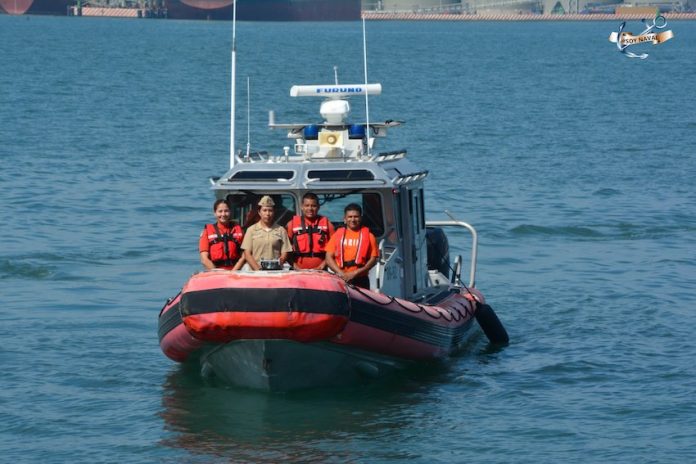Navy personnel on Thursday rescued 51 migrants in two hand-crafted wooden boats in waters about 4 nautical miles (7 kilometers) north of Isla Mujeres, just off the coast of the state of Quintana Roo.
The Navy Ministry (SEMAR) said its headquarters in the Ninth Naval Region received an emergency call alerting them to the presence of the two boats. The Ninth Region functions as a Coast Guard and is based out of Isla Mujeres.

Navy ships intercepted the boats, reported the newspaper La Jornada Maya, and pulled the migrants aboard, acting to “safeguard their lives.” The migrants were treated by Navy medics and, upon being taken to land at Puerto Juárez, were turned over to immigration (INM) authorities.
SEMAR did not reveal if the migrants themselves had made the emergency call, or if it came from a third party. The nationalities of the migrants have not been reported, nor is it clear from which country they had embarked or how long they had been traveling.
This incident at sea comes just over a month after the INM offices in Cozumel received 28 migrants who had been rescued in open waters by a cruise ship.
While en route from Tampa, Florida, to Cozumel, Mexico, a Carnival Paradise cruise liner came upon the migrants drifting in a makeshift boat fitted with a sail about 20 nautical miles (37 kilometers) west of Cuba.
Upon determining that the overcrowded boat appeared to be in poor condition, the cruise ship executed a rescue and delivered the migrants to the INM offices in Cozumel.
Cozumel is an island off the coast of Quintana Roo about 130 kilometers (81 miles) south of Isla Mujeres.
In the latter case, the 28 migrants — 18 men, nine women and one unaccompanied minor — were identified as Cubans. The INM provided the migrants with medical treatment before transporting them to Cancún where the adults were provided shelter while their immigration status was resolved. The unaccompanied minor was turned over to Family Protection Services (DIF), also in Cancún.
The arrival of undocumented migrants in Mexico rose significantly last year, surpassing by 77% the numbers recorded in 2022, according to the International Organization for Migration (IOM).
With reports from La Jornada Maya and Quadratín Yucatán
